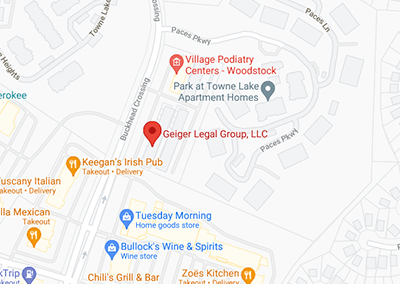FAQ Category: Personal Injury FAQs
How do I get ready for a deposition?
A deposition is a testimony that occurs outside of the courtroom. In general, the opposing attorney asks questions that you are required to answer under oath. You should treat a deposition as if you are being called as a witness in a courtroom, as most anything you say during the…
What steps are involved in the personal injury claim process?
We created a short guide for what to do immediately after a car crash. But what’s the process after that? If you haven’t already, you should always seek medical treatment for your injuries. Your injuries may seem minor at first, but it’s always best to have a doctor evaluate you to understand…
What makes a personal injury a catastrophic injury?
Catastrophic injuries are severe types of personal injuries. There will generally be life-altering changes to someone’s body and/or life. From a legal perspective, catastrophic injuries describes any injury that hinders a person’s physical or cognitive abilities. Examples include spinal injuries, traumatic brain injuries, loss of limbs, paralysis, severe burns, and…
What documents can I sign for my personal injury case? Should I be signing anything?
Do not sign ANYTHING without a thorough review, preferably by a personal injury attorney. If you accept any kind of payment or reimbursement, or if you accept fault or responsibility for anything more than you should, that could have a detrimental effect on the outcome of your case. The insurance…
What should I be doing about my personal injury case right now?
Keep a record of everything. Save medical receipts, save receipts from anything you need to buy due to the accident (repairs, quality of life, etc), and record any time you are missing work (and income). Keep a journal of how you are feeling, your pain (commonly called a “Pain Journal”),…
How much will a personal injury case cost me?
A personal injury case should not cost you anything out-of-pocket, just time and patience. Typically, personal injury attorneys work on a contingent fee basis, which means they are paid a percentage of the gross recovery from the case. That percentage ranges from 25% statutory for workers comp, up to 40%…
How long does a personal injury case take?
This is a common answer for questions regarding personal injury cases: it depends. It can take around 12-18 months, or sometimes longer. That is where your patience comes in. In general, personal injury cases should never be settled until you are fully recovered from your injuries, or your future medical…
How can I be better prepared for a personal injury case?
The number one thing you can do to be prepared for a personal injury is to be healthy beforehand. Complete your physical every year (even better, every six months), get your bloodwork done, and take care of yourself. If an accident occurs, you can show definitive proof of the negative…
Do I need to tell my personal injury attorney everything?
Yes! Be 100% forthright and honest with your attorney. First, make sure you vet your attorney before hiring them. But once you are working with them, it is their job to help assess everything about your case and do their best job to represent you. If there is information that…
Do I need a personal injury lawyer? Or can I handle this on my own?
In general, you should always consult with a personal injury lawyer after you have been in an automobile crash. Insurance companies are professionally trained to diminish the value of your case and force you into an early settlement. A personal injury lawyer equalizes the insurance company’s advantage in the negotiation….













